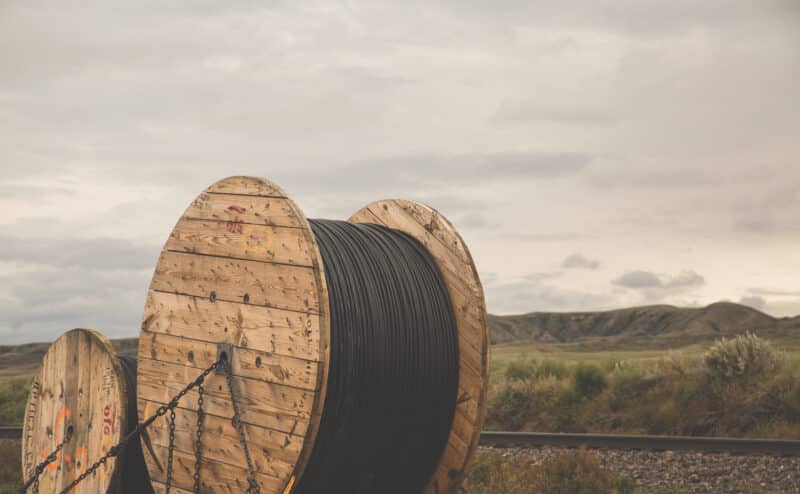
As a gateway to the networked economy, broadband has the potential to transform the future of work for rural areas, while opening the door to inclusive opportunity and more equitable local economies. But at the Just Transition Fund we consistently hear from our local partners that poor or non-existent broadband connectivity is putting this transformation out of reach.
The data bear this out: roughly one-third of residents in the rural communities and Tribal Nations where we work cannot access high-speed internet. That inequity not only restricts opportunities for work but also impedes education, healthcare, public services, and the civic engagement that are all critically needed to drive equitable economic growth — especially in communities just beginning their economic recovery from the closure of mines and coal-fired power plants.
Critical opportunities for community engagement ahead of federal funding deadlines
The Biden administration has recognized the urgency of closing the digital divide. In the past two years, we’ve seen historic levels of federal funding to expand broadband, including a combined $85 billion from the CARES Act, the American Rescue Plan, and the Infrastructure Investment and Jobs Act (IIJA), all intended to increase broadband access, affordability, and adoption.
Both existing and new federal investments like these could spur equitable, inclusive, and sustainable economic growth in rural areas and coal-impacted communities. To ensure these broadband dollars meet local needs in the hardest-hit communities, community-based organizations must take action, including the following essential activities:
- Plan ahead and be ready to apply for existing state and federal broadband programs. While it is getting the most attention, much of the funding for broadband passed in the IIJA won’t start flowing until 2024. In the meantime, communities must plan early to apply for funding that’s available or expected to be available before the end of the year including:
-
- State Broadband Office Grant Programs that have deadlines and focus areas that differ by state
- National Tribal Broadband Grant (NTBG) due October 17, 2022 to support Tribes in conducting feasibility studies and necessary broadband planning
- US Department of Agriculture (USDA)’s ReConnect due November 2, 2022 to support infrastructure projects to expand broadband access
- Federal Communications Commission (FCC)’s Affordable Connectivity Outreach Grant Program is expected to announce an application deadline soon for this program designed to support organizations in conducting outreach to increase enrollment in the monthly internet subsidy, Affordable Connectivity Program (ACP)
- US Department of Agriculture (USDA)’s Community Connect Grant Program is expected to open applications in late 2022 to support construction and expansion of broadband service in unserved rural communities with a population of 20,000 people or less
- US Department of Agriculture (USDA)’s Distance Learning & Telemedicine (DLT) Grants is expected to open applications in late 2022 to support equipment to deliver telemedicine service and distance learning in rural communities with a population of 20,000 people or less
- Engage in state planning processes and communicate local needs. The IIJA’s State Digital Equity Program and the Broadband, Equity, Access, and Deployment (BEAD) Program are run through state agencies, and both programs require a state-run planning process to determine how each state will design and implement its grant programs. These processes require community engagement and provide critical opportunities for coal-impacted communities to make sure their state governments are aware of local needs and goals. Reach out to your State Broadband Offices to learn how you can get involved and make sure your community’s needs are heard in the process.
- Vet maps that will determine eligibility for future funding. Both the Federal Communications Commission (FCC) and State Broadband Offices will be releasing updated maps of localities designated as “served,” “underserved,” or “unserved” by existing internet infrastructure. Community leaders and advocates have an opportunity to challenge the maps based on their local knowledge of available broadband services. Engagement in these processes is critical because funding will be allocated to states and projects based on the number of unserved households. These maps will determine not only how much money states receive but also which communities are eligible to apply for future grant programs that states develop.
Our plan to help coal communities apply for and secure broadband funding
The Just Transition Fund wants to make sure coal communities have the capacity to go after existing federal and state broadband funding and advocate for their local needs in the design of new programs being developed in the next few years. That’s why we’re scaling up our efforts to help organizations across the country meet the challenge and access the federal funding and other resources they need to unlock new levels of internet connectivity in their communities.
We are offering grants (between $25,000 and $150,000) and technical assistance to support things like:
- Grant writing to put together a successful application
- Identifying grant programs that are a good fit for a community project
- The community’s portion of infrastructure project matching funds
- Building internal staff capacity to further develop and refine a community broadband project
- Feasibility studies or additional project planning
If your organization is interested, fill out this form to tell us more about your needs. We’ll reach out to schedule a call with you to learn more about your work.
Moving the needle on broadband takes time, so we plan to support organizations with flexible capacity grants and one-on-one support to help identify unique needs. Recipients of broadband grants or technical assistance are invited to join our community of practice. Through ongoing open calls and relationship-building, we support and connect communities with one another to facilitate peer learning, mentorship, and the sharing of best practices. This approach will enable us to connect grantee partners with the necessary coaching and technical support to help get the job done. Let’s get started!
Natalie Roper is Director of Special Projects at Just Transition Fund. She previously worked as Executive Director of Generation West Virginia.
<< Back to news